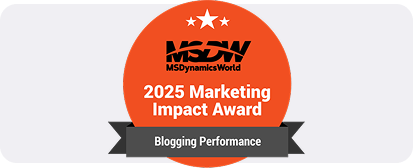Microsoft Dynamics CRM vs Salesforce | CRM Comparison 2025
Every business leader remembers the moment when customer relationships started slipping out of control. Spreadsheets felt heavier. Calls were missed. Promises made in meetings turned into silence. A growing business cannot run on scattered notes and goodwill forever. That is when CRM software stops being an option and becomes a lifeline.
Do you know: On average, companies that implement a CRM software see a 30–40% improvement in customer satisfaction and sales productivity.
So, the choice of CRM does not simply guide your sales team but defines whether your business scales with confidence or struggles in chaos. The conversation always turns toward Microsoft Dynamics CRM vs Salesforce, two names that dominate boardrooms from Toronto to Vancouver.
Both Microsoft Dynamics 365 CRM and Salesforce claim to be the bridge that connects people, processes, and profits. They promise efficiency, clarity, and control. Yet choosing between them is never straightforward. Each carries strengths that shape customer relationships in very different ways. Let us step into this debate with fresh eyes, far from recycled blog posts that repeat what everyone already knows.
The Big Question: Is CRM by Microsoft Dynamics Better than Salesforce?
This is the question that sparks debates in every executive meeting: Is Microsoft Dynamics CRM better than Salesforce? The answer depends less on the pain points you face every single day. Businesses crave control of data, faster decision-making, and systems that speak to each other without friction. Microsoft Dynamics 365 thrives here because it ties directly into Microsoft’s broader ecosystem, from Outlook to Teams to Power BI. Salesforce shines with powerful customer engagement tools and a strong marketplace of integrations.
If your organization demands deep financial visibility tied with customer relationships, Dynamics 365 CRM often becomes the preferred choice. If your business runs with heavy sales-first thinking and does not require tight integration with finance or operations, Salesforce carries weight.
Microsoft Dynamics CRM
Microsoft Dynamics CRM includes different apps such as Sales, Customer Insights, Customer Service, and Field Service. Many people talk about ERP vs CRM as if they are two separate worlds. With Dynamics 365, both come together in one suite.
This means you can manage daily business operations with ERP and handle customer relationships with CRM without switching between different systems. Everything connects smoothly, and the data works together, giving your business one clear picture instead of scattered information.
Key features and benefits
- End-to-end business visibility across the CRM. For instance, if you are using Customer Service and Sales in combination, the data remains consistent and visible across apps.
- Native integration with Microsoft tools like Teams, Outlook, and Excel for seamless adoption.
- AI-driven insights that support smarter forecasting and personalized customer journeys.
- Flexibility to scale from small teams to multinational operations.
Salesforce
Salesforce is famous for being the pioneer of CRM in the cloud. It focuses heavily on customer interaction, lead tracking, and marketing automation. Its AppExchange marketplace offers thousands of third-party integrations. The platform thrives when the priority is customer-centric growth, with less focus on core ERP functionality.
Key features and benefits
- Strong lead and pipeline management for sales-first organizations.
- Marketing automation that nurtures prospects with personalized engagement.
- Large integration marketplace through AppExchange.
- Global community and support network that makes adoption smoother.
Dynamics 365 CRM vs Salesforce: Head-to-Head Comparison
When you compare Dynamics 365 CRM vs Salesforce, you start seeing the real differences. Businesses in Canada, especially across Ontario, evaluate both with a sharp focus on cost, integration, and long-term strategy.
| Feature | Microsoft Dynamics 365 CRM | Salesforce |
|---|---|---|
| Core Strength | Wide choices for CRMs | Sales-first CRM focus |
| Integration | Native with Microsoft ecosystem (Teams, Outlook, Excel) | Extensive through AppExchange |
| AI Capabilities | Embedded across finance, operations, and sales | Strong within sales and marketing |
| Scalability | Flexible from SMBs to enterprises | Strong for sales-driven enterprises |
| Reporting | Deep financial and operational analytics | Customer engagement reporting |
| Licensing | Often more competitive in MSFT Dynamics vs Salesforce cost comparisons | Higher cost with add-ons |
Which CRM is better than Salesforce?
Many executives wonder: Which CRM is better than Salesforce? The answer often points toward Microsoft Dynamics 365 CRM, especially for companies seeking an integrated view of their marketing and customer service data alongside sales. Others may explore SugarCRM vs Salesforce vs MSFT Dynamics CRM, but Dynamics CRM consistently stands out for its highly intuitive UI, advanced AI-powered features, and timely updates from Microsoft. Salesforce still holds power for marketing-heavy firms, but when operational control and financial clarity are as critical as customer engagement, Dynamics CRM brings a sharper advantage.
Who is Salesforce’s Biggest Competitor?
There is little debate on this question. Microsoft remains Salesforce’s strongest competitor across global markets. The reason lies within reach. From small business accounting in Business Central to enterprise-wide resource planning, Microsoft covers the entire business journey. Salesforce keeps its crown in customer-first CRM, yet when decision makers ask about comprehensive business control, Microsoft Dynamics carries more influence.
Choosing the Right Solution
Every Canadian business must ask the deeper question: which system reduces daily chaos? Think of the hours wasted reconciling sales data with finance reports or the frustration of shifting between tools that refuse to sync. A growing company in Ontario might see Salesforce as appealing for sales teams but soon discover that financial visibility remains a separate challenge. Dynamics, with its ERP and CRM capability, helps leaders break free from that struggle.
When weighing Microsoft Dynamics CRM vs Salesforce cost, consider hidden layers. Salesforce often requires multiple add-ons to cover gaps, while Dynamics offers a broader foundation at entry. That difference becomes critical when calculating long-term value, especially in cities like Toronto, where competition pushes margins thinner every quarter.
The Future of CRM Choice
Businesses can no longer gamble with customer data. Growth demands a CRM that does more than store contacts and track calls. It demands systems that anticipate, connect, and simplify. Whether your business is in Vancouver, Toronto, or smaller regions of Ontario, the choice between Microsoft Dynamics vs Salesforce defines how confidently you move forward.
Salesforce carries incomparable strength in pure customer engagement. Microsoft Dynamics 365 brings balance across the wider spectrum of business needs. The decision is less about features and more about alignment with your strategic vision.
Why Dynamics Square Can Help
Making sense of Microsoft Dynamics 365 vs Salesforce is not an academic exercise. It is a business-defining decision. Canadian firms need a partner that understands regional markets, regulatory compliance, and the nuances of scaling. This is where Dynamics Square stands apart. With deep expertise in Dynamics 365 implementation, Dynamics Square supports companies across Canada, from Vancouver’s growing tech firms to Toronto’s financial hubs to Ontario’s manufacturing sector.
Choosing the right CRM is a story about survival, growth, and trust. With Dynamics Square, businesses gain not only Microsoft-certified professionals but also a team that translates technology into results. If your next chapter requires clarity, efficiency, and confidence, Dynamics Square is ready to guide your journey.
You can reach us at +1 778 381 5388 or info@dynamicssquare.ca, and we'll help you digitally transform with connected systems.
.jpg)


